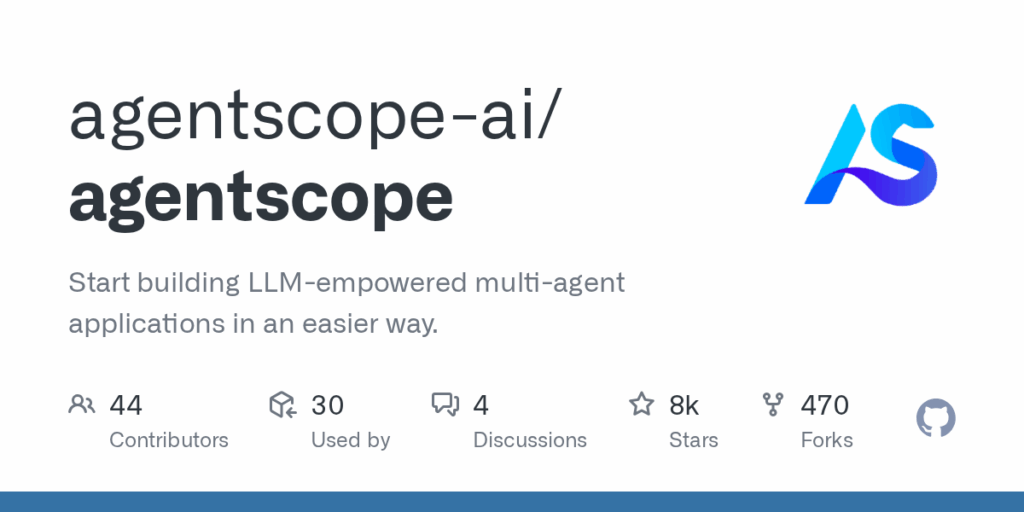agentscope
Basic Information
AgentScope is a developer-focused framework for building LLM-powered, agent-oriented applications and multi-agent workflows. It provides a transparent, modular programming model that exposes prompt engineering, API invocation, agent logic, tool integration, workflow orchestration, and state management so developers can see and control each step. The project targets use cases where multiple agents interact explicitly through message passing, supporting both synchronous and asynchronous execution patterns. It is model-agnostic so code can run with different LLM backends. The repository includes libraries for models, tools, memory, tracing, sessions, prompt formatting, evaluation and a local Studio for tracing and visualization. It is published as a Python package requiring Python 3.10 or higher and can be installed from source or via PyPI.








